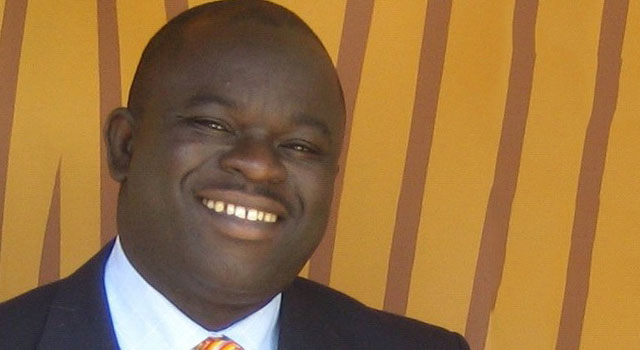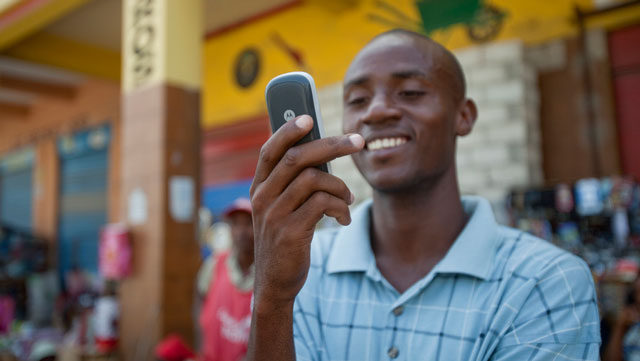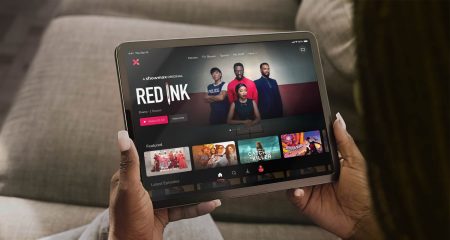
The broadcasting landscape in Africa is poised for disruptive change, with locally developed television content delivered over mobile phone networks set to change the way people across the continent consume media.
This is the view of Ghanaian-born George Twumasi, who is attempting to address the market by building a syndicated content network for mobile operators through his company African Broadcast Network (ABN) Holdings. He’s dreaming big, saying it has the potential to be a multibillion-dollar company in time.
He tells TechCentral that most African markets are far behind in their roll-out of digital terrestrial television, and this has opened a gap for mobile operators to offer video content to their customers.
Commercial broadcasting has also not taken off in the way it has elsewhere, raising questions about how new channels that will be created by the shift to digital will be filled with content produced by Africans for Africans. Twumasi wants to plug that gap.
He thinks the potential market is huge, running into hundreds of millions of consumers.
“MultiChoice, which has access to less than 5% of the continent’s viewing population, has created a huge company,” he says. “The vast array of possibilities that exists has not been fully exploited.”
After studying at the National Film and Television Institute in Ghana, Twumasi spent much of his early career in the broadcasting industry in the UK. But his passion for broadcasting in Africa never dimmed, he says.
After 1994, when the free-to-air television broadcasting started opening up across Africa, he became a consultant working with broadcasters in East and West Africa.
In 1998, he started ABN and began syndicating prepackaged content to 16 countries.
“The model was ahead of its time,” he says. He resigned and ABN went into liquidation a year later.
He bought the assets and launched ABN Holdings in 2004, and secured investments from unnamed high-net-worth individuals in the UK. He is promising a further announcement in the first quarter of this year about securing “significant further investments”.
The company hopes to get involved in public-private partnerships in addition to raising private equity funding and investments for specific projects.
According to Twumasi, of Africa’s 1,1bn people, 900m will have access to a mobile phone by the end of 2015. “Given easy access to mobile television broadcasting, cheap broadband services will likely encourage the majority of these young Africans to skip traditional television and directly consume television entertainment content via personal mobile devices,” he wrote recently.
“The demand for affordable mobile television devices … is set to soar as quality, African-produced content becomes increasingly accessible for millions of new, insatiable consumers.”
Twumasi says ABN’s goal is to create an African broadcasting network focused on content development and distribution. And mobile will be key to achieving the latter. He sees ABN becoming an intermediary between broadcasters and telecoms operators.
“Broadcasters in Africa will become digital content publishers. It’s likely that mobile operators will end up owning all of the infrastructure for distribution. Set-top boxes are the mantra of most national governments, but multiplexes will end up at head-ends pointing to mobile telephony.”
Telecoms industry veteran Brian Seligmann, who consults to ABN, says the idea is to help mobile operators make their propositions more attractive to their customers.

“The networks are building more and more expensive infrastructure, to all intents and purposes driven by competitive pressures,” Seligmann says. “Why build an LTE network? It’s a ‘me too’ syndrome. Billing per bit is an expensive business. What are you going to put on these networks? The best thing is video. You can have western content, which is largely tied up by MultiChoice, or you have the really poor local content.
“Or,” he says, “you can build something in the middle which is exciting, entertaining, relevant and different. What would be compelling to an African user? Something that is not propaganda, not insulting to their intelligence and relevant to their culture. It’s taking a long time, and to a large extent it’s taking a long time because the bureaucracy on this continent hasn’t been ready. Telcos have been making too much money out of voice. But suddenly, all the telcos have woken up to the fact that [third-party over-the-top content] providers might be a problem and they need to do something about it.”
Twumasi is keen to work with both commercial and public service broadcasters. He says ABN’s efforts should prove complementary to the latter’s digital TV projects.
ABN Holdings will soon launch a production entity to commission and produce content — specifically thematic channels with broadcasters. “We intend to kickstart a new industry and to become the commissioning editor, as it were, of thematic channels for long-form and short-form programming across Africa,” he says.
“A leading production company in South Africa, Rapid Blue, will be evolved into the content hub for the proposition. We will work with another production hub and will create a production ecosystem across the continent.” — (c) 2015 NewsCentral Media




